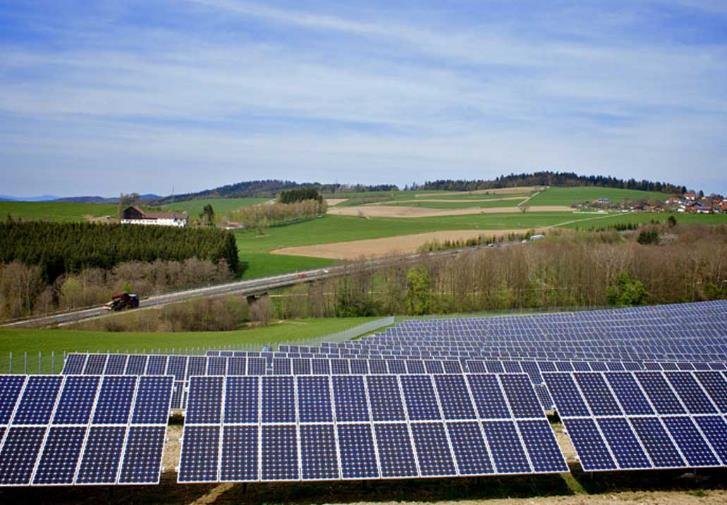Saudi Arabia’s sovereign wealth fund, the Public Investment Fund (PIF), is making significant strides in renewable energy investments as part of the Kingdom’s Vision 2030 initiative. The $990 billion fund has recently signed four joint venture deals involving solar, wind, and green hydrogen projects. These investments aim to transform Saudi Arabia from one of the world’s largest oil producers into a leading player in renewable energy, supporting the country’s goal to generate up to 130 gigawatts of renewable energy by the end of the decade.
One of the key joint ventures involves a partnership with Shanghai-based wind power technology company Envision Energy and Saudi manufacturing firm Vision Industries. This venture will focus on manufacturing and assembling wind turbine components, with an estimated annual generation capacity of 4 gigawatts. Envision will hold a 50% stake in the joint venture, while PIF’s subsidiary, Renewable Energy Localization Co. (RELC), will own 40%, and Vision Industries will hold the remaining 10%.

Another significant partnership is with Jinko Solar Co. Ltd., also based in Shanghai, and Vision Industries. This joint venture aims to manufacture photovoltaic cells and modules in Saudi Arabia, generating 10 gigawatts of solar power annually. Under the agreement, RELC and Jinko Solar will each hold a 40% stake, with Vision Industries owning the other 20%. This collaboration is expected to enhance Saudi Arabia’s solar energy production capabilities and support the country’s renewable energy targets.
The third joint venture is with Lumetech SA PTE Ltd., a subsidiary of China’s TCL Zhonghuan Renewable Energy, and Vision Industries. This deal focuses on producing solar photovoltaic ingots and wafers in Saudi Arabia, with an annual production capacity of 20 gigawatts. RELC and Lumetech will each own a 40% stake in the joint venture, with Vision Industries holding 20%. These partnerships highlight Saudi Arabia’s commitment to localizing renewable energy production and building a robust supply chain within the country.
Green Hydrogen Initiatives
In addition to solar and wind projects, the PIF has signed a memorandum of understanding (MoU) with French utilities company Engie SA to jointly develop green hydrogen projects in Saudi Arabia. This collaboration aims to evaluate the feasibility of co-development opportunities and form a strategy to approach the international market and secure offtake arrangements. Engie’s Frédéric Claux emphasized that the partnership with PIF will contribute to establishing Saudi Arabia as one of the top exporters of green hydrogen worldwide.
Green hydrogen, produced using renewable energy sources, is seen as a key component in the transition to a low-carbon economy. Saudi Arabia’s investment in green hydrogen projects aligns with its broader strategy to diversify its energy mix and reduce its carbon footprint. The development of green hydrogen infrastructure will not only support domestic energy needs but also position Saudi Arabia as a major player in the global green hydrogen market.
The PIF’s focus on green hydrogen is part of a larger effort to develop sustainable energy solutions and reduce reliance on fossil fuels. By investing in green hydrogen, Saudi Arabia aims to leverage its abundant renewable energy resources to produce clean and sustainable energy. This initiative is expected to create new economic opportunities and drive innovation in the energy sector.
Future Prospects and Impact
The PIF’s investments in renewable energy are set to have a transformative impact on Saudi Arabia’s energy landscape. By localizing the production of renewable energy components and building a robust supply chain, the Kingdom is positioning itself as a leader in the global renewable energy market. These investments will support the creation of new industries and jobs, contributing to economic diversification and growth.
The success of these joint ventures will also enhance Saudi Arabia’s energy security and resilience. By developing domestic renewable energy capabilities, the Kingdom can reduce its dependence on imported energy and increase its self-sufficiency. This shift towards renewable energy will also help Saudi Arabia meet its climate goals and reduce greenhouse gas emissions, contributing to global efforts to combat climate change.
Public awareness and support for renewable energy initiatives are crucial to the success of these projects. By educating the public about the benefits of renewable energy and promoting sustainable practices, Saudi Arabia can foster a culture of sustainability and environmental stewardship. The PIF’s investments in renewable energy are a testament to the Kingdom’s commitment to a sustainable future and its leadership in the global energy transition.
